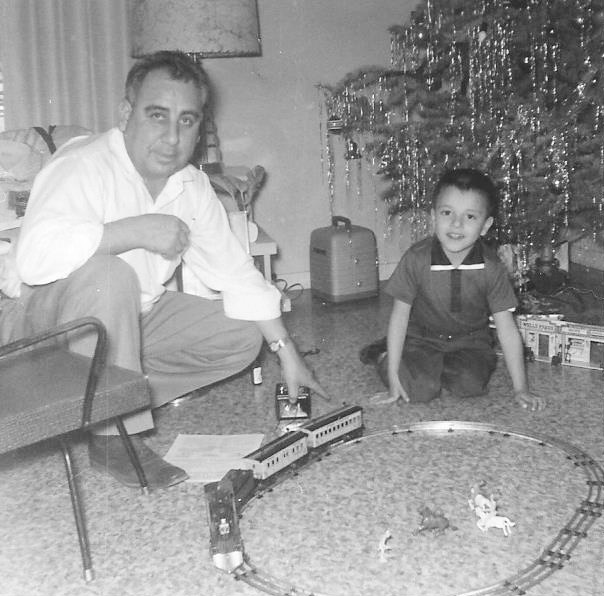Story
Colorado’s Legacy of Compassion
History Colorado is gathering and sharing memories that celebrate our state’s rich Hispano culture. Here, Larry Apodaca shares the fourth in our monthly series produced exclusively with The Weekly Issue/El Semanario.
The history of many Colorado Latino families begins with our experience with immigration, either personally or by way of our extended families, friends or community. My story begins in the San Luis Valley of southern Colorado in the small town of Antonito. I was born in an Alamosa hospital in the winter of 1955 and was eventually put up for adoption by my birth parents, who named me Joey Duran. I was blessed to be adopted by a wonderful loving Latino family from Rocky Ford, in the Arkansas Valley, and so began the story of my Colorado history.
My mother and father can trace their roots from Mexico to New Mexico and into Colorado. I am a second-generation Coloradoan and with my great granddaughter we are working on generation number 5. Like many Latinos our families’ lives straddle the border between two countries, with family living both north and south of the border.
The hope of a better life for our family was the incentive for immigrating to this country. Both my parents were migrant farm workers in the fields of the Arkansas Valley. As their journey progressed my father became a State Advocate for Migrant Farm Workers for the Colorado Department of Labor and my mother, Teresa, devoted her time to family and helping the less fortunate in our community. The 1959 Cuban Revolution, a world away, would change the trajectory of my Colorado experience. In 1960 my father, Gene Apodaca, eventually would be called on to assist in the mass immigration of the Cuban people to Miami in the winter of 1960.
Each year throughout my childhood I would be taken out of school after my birthday in February and our family would head down to Texas, returning in mid-June. My father and a handful of Latinos from Colorado were charged with the task of filling the pipeline of farm workers throughout the entire US. In 1960, however, my father was asked to be a part of a team from five southwestern states that would go to Florida to assist the immigrant families who would soon be arriving on Miami’s shores. I would soon be exposed to the full beauty, diversity and commonalities of our Latin culture.
That year was an awakening for a young boy from the San Luis Valley. I found myself 2,000 miles away from the familiar things of my culture. In my short life I had come to know papas, frijoles pintos, chilé roja, tortillas, mariachis, boleros, brown skin, green eyes and what I thought was Spanish. To my amazement and appreciation I was exposed to this mysterious culture with its plantains, black beans, salsa (the dance), merengue, cumbia, café Cubano and a way of speaking our mother tongue that still takes my breath away.
The most wonderful and shocking thing was when we accepted a dinner invitation from one of the families my father had been helping. I met the mother, Camila, and she was the most beautiful thing I had ever seen with her deep jade eyes, her exquisite ebony skin and her hair with its curls upon curls, but the most amazing thing was when she opened her mouth to speak and out came our beautiful Spanish language. At that moment my life would transform from a mere Mexican experience to a Latino cultural explosion. Mi casa es Colorado, mi sangre es Colorado y mi tierra es Colorado. Let the legacy of this beautiful state be the love we feel, the peace we share and the legacy of compassion we leave for generations to come.
Would you like to contribute to We Are Colorado? Send us your story about your Hispano-Colorado connection! Must be 250 words or less. Please include a photo and email marissa.volpe@state.co.us.

